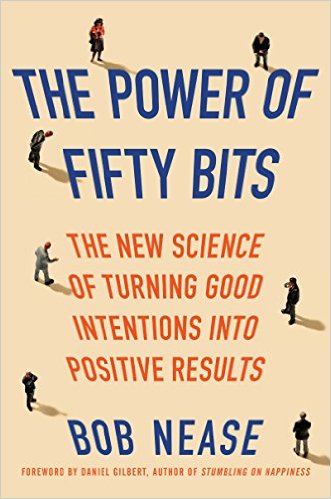 The most recent Wired has a series of articles on how tracking personal data is changing people’s behaviors. They cite the Nike+ system as an example of the potential revolutionary effect of self measurement. Nike+ combines a non-intrusive sensor, an iPod, and easy-to-use web-based tools to track your runs. The data management apparently takes nearly no effort, and the online reporting is compelling.Wired chalks this up to the Hawthorne effect, which suggests that people change their behavior when they know they’re being observed. (Interesting side note: University of Chicago’s Steven Levitt and John List reanalyzed the data from the original Hawthorne study and concluded that methodological issues — mostly relating to the lack of a suitable control group — threaten the ability to draw such strong conclusions.)
The most recent Wired has a series of articles on how tracking personal data is changing people’s behaviors. They cite the Nike+ system as an example of the potential revolutionary effect of self measurement. Nike+ combines a non-intrusive sensor, an iPod, and easy-to-use web-based tools to track your runs. The data management apparently takes nearly no effort, and the online reporting is compelling.Wired chalks this up to the Hawthorne effect, which suggests that people change their behavior when they know they’re being observed. (Interesting side note: University of Chicago’s Steven Levitt and John List reanalyzed the data from the original Hawthorne study and concluded that methodological issues — mostly relating to the lack of a suitable control group — threaten the ability to draw such strong conclusions.)But I think there’s something more interesting going on: hyperbolic discounting. That’s the human tendency to heavily discount future events relative to those in the present. Hyperbolic discounting is the science that underlies procrastination, explaining that little hassles in the present hang us up. We have good intentions but have a hard time getting around to executing on them.Hyperbolic discounting is relevant here for a couple of reasons. First, the Nike+ system is extremely easy to use. As Wired notes, there’s no need to keep a journal, measure distance, etc. You simply attach a doodad to your shoe, turn on your iPod, run, and then plug your iPod back into your computer when you’re done. Because small costs loom larger than most people recognize, reducing the upfront hurdles is important.
Second, quantitative feedback telescopes into the present the future benefits of good behavior. This is crucial because almost every healthy behavior involves both costs and benefits. Unfortunately, these costs and benefits are often decoupled in time, with the costs occurring up front and the benefits downstream. Although we earnestly plan to engage in healthy behaviors (because both costs and benefits are in the future and thus are equally discounted), we just as earnestly have trouble executing on those plans: When it comes time to act, the present costs loom large but the downstream benefits remain discounted.
If you’ve ever packed workout gear for a business trip and returned home without working out, you’ve seen how hyperbolic discounting can cause you to plan to be good but to fall short on the execution side.
Dan Ariely (who is a member of our Center for Cost-Effective Consumerism’s advisory board) and his colleague Michael Norton have written recently about conceptual consumption, the human ability to forage on and enjoy nontangibles such as concepts. It strikes me that quantitative self measurement provides an interesting mechanism for people to enjoy some of the future benefits of good behavior immediately. The feedback offered by Nike+ and other self-measurement schemes offers the ability to monitor gains that might otherwise be too far in the future to enjoy.
In a sense, knowing our numbers allows us to get a little taste in the present of benefits that are to come. And for some of us, that just may be enough to tip the scale toward behavior that benefits us in the longer term.
(Note: this entry originally appeared at consumerology.com)

